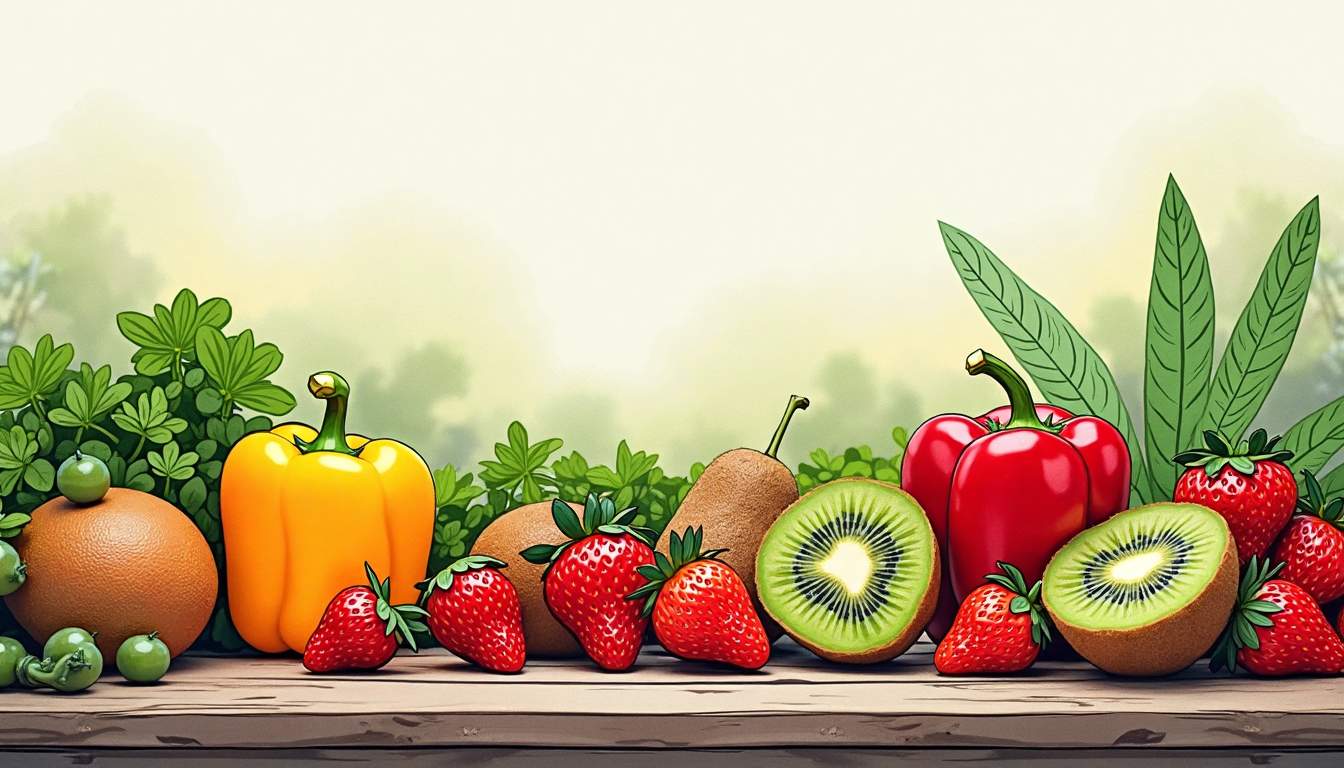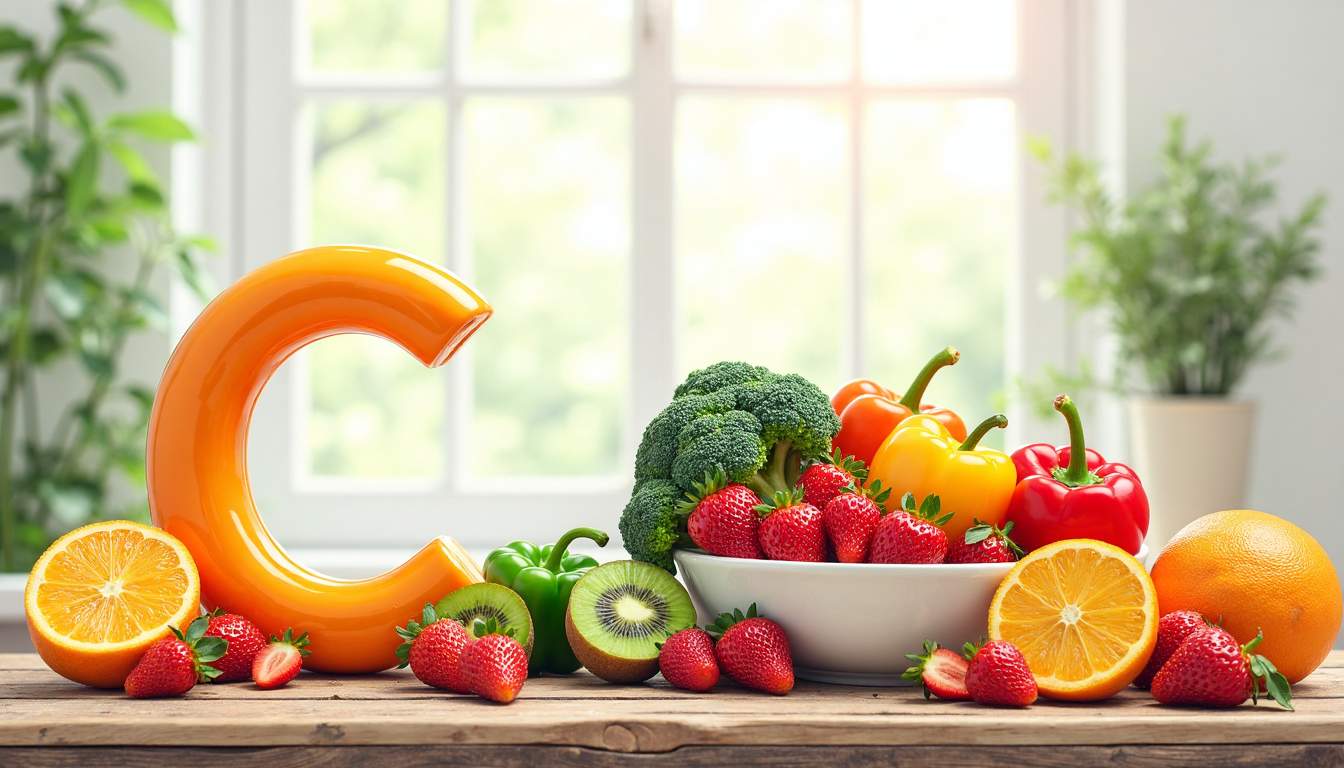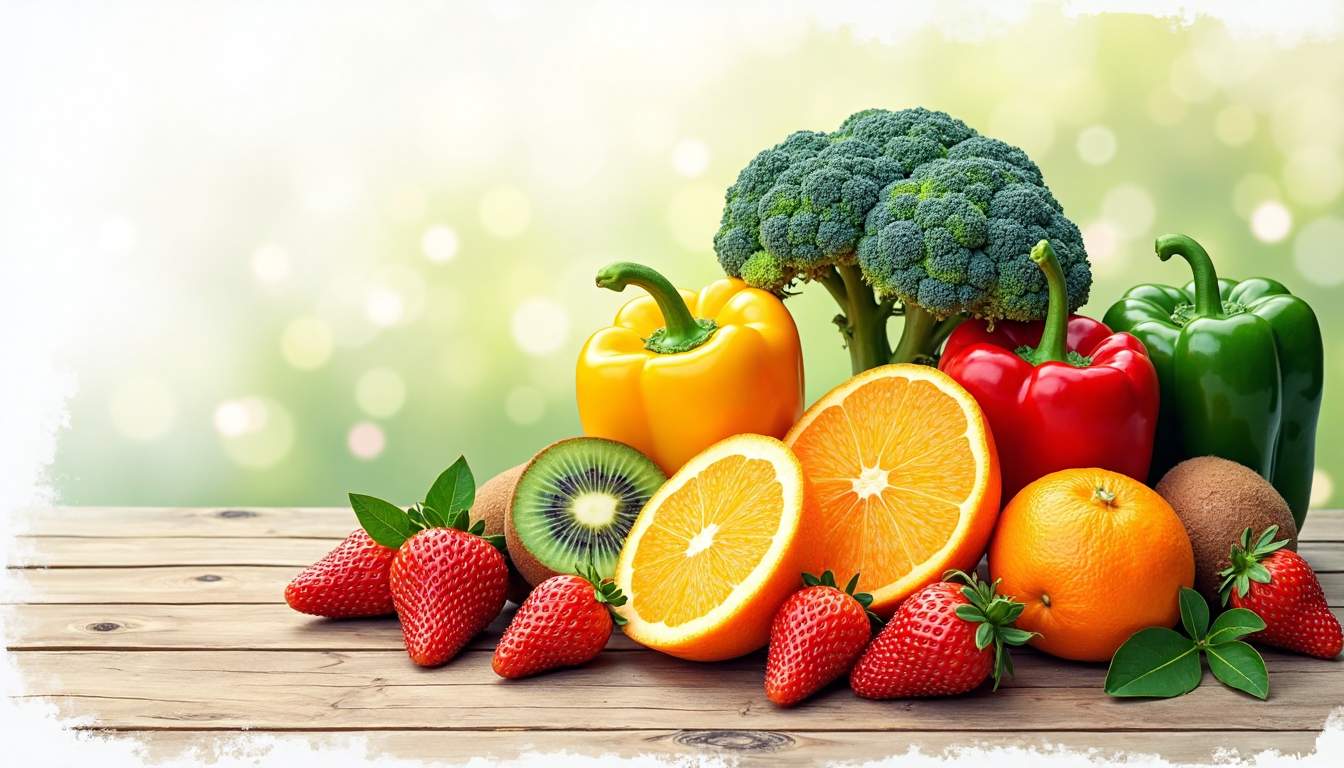Citrus fruits, bell peppers, and berries are among the best foods high in vitamin C. These nutrient-rich options support immune function, collagen production, and antioxidant protection. Including a variety of these foods in your diet can naturally boost vitamin C levels and improve overall health.
Vitamin C, also known as ascorbic acid, is a vital nutrient that plays a crucial role in maintaining overall health. This water-soluble vitamin is renowned for its antioxidant properties, helping to protect the body against free radicals and supporting the immune system. Additionally, vitamin C is essential for collagen production, aiding in the maintenance of skin, cartilage, and bones. With numerous food sources available, it is important to understand which options are the best for boosting vitamin C intake.
Citrus Fruits: The Vitamin C Champions
Citrus fruits are often the first foods that come to mind when discussing vitamin C. Their bright colors and refreshing flavors make them a popular choice for many. Rich in this essential nutrient, citrus fruits not only provide a delicious taste but also a significant health boost.
Oranges and Grapefruits: Classic Powerhouses
Oranges are perhaps the most well-known source of vitamin C. A medium-sized orange typically contains about 70 mg of vitamin C, which is more than the daily recommended intake for adults. Grapefruits, on the other hand, offer a tangy alternative, with a half of a medium grapefruit providing approximately 38 mg of vitamin C. Both fruits are versatile and can be enjoyed fresh, juiced, or added to various dishes.
In addition to their vitamin C content, oranges and grapefruits are rich in fiber, which aids digestion and promotes a healthy gut. They also contain flavonoids, which have been linked to reduced inflammation and improved heart health. Including these fruits in a daily diet can provide a refreshing way to meet nutritional needs. Furthermore, the natural sugars found in these fruits can satisfy sweet cravings without the guilt associated with processed sugars, making them an ideal snack choice for those looking to maintain a balanced diet.
Lemons and Limes: Versatile Vitamin Sources
Lemons and limes are not just for flavoring dishes or drinks; they are also excellent sources of vitamin C. A medium lemon contains about 44 mg of vitamin C, while a medium lime has around 20 mg. Their tartness makes them a perfect addition to both sweet and savory recipes.
Beyond their vitamin C content, lemons and limes have been associated with various health benefits. They may help improve iron absorption from plant-based foods, making them an excellent companion for salads or vegetable dishes. Additionally, the high acidity of these fruits can enhance the flavor of meals without adding extra calories or sodium. The zest of lemons and limes, often overlooked, is packed with essential oils and antioxidants, making it a fantastic way to add a burst of flavor and nutrition to baked goods, marinades, and dressings. Moreover, the refreshing aroma of citrus can uplift mood and energize the senses, making these fruits not just a dietary staple but also a delightful addition to daily life.
Surprising Non-Citrus Vitamin C Sources
While citrus fruits are well-known for their vitamin C content, many other foods can provide this essential nutrient. Incorporating a variety of non-citrus sources can help diversify the diet and ensure adequate vitamin C intake.

Bell Peppers: More Vitamin C Than Oranges
Bell peppers, particularly the red variety, are a surprising powerhouse of vitamin C. A single medium red bell pepper can contain over 150 mg of vitamin C, significantly surpassing the amount found in an orange. This makes bell peppers an excellent choice for those looking to boost their vitamin C levels.
In addition to their impressive vitamin C content, bell peppers are low in calories and high in antioxidants. They are versatile vegetables that can be eaten raw in salads, roasted, or sautéed. Including bell peppers in meals not only enhances flavor but also contributes to overall health. Furthermore, bell peppers are rich in other vitamins and minerals, such as vitamin A and potassium, which support immune function and heart health. Their vibrant colors also indicate a wealth of phytonutrients, which can help combat inflammation and oxidative stress in the body.
Berries: Small Fruits with Big Benefits
Berries, such as strawberries, blueberries, and raspberries, are not only delicious but also rich in vitamin C. A cup of strawberries can provide about 85 mg of vitamin C, making them one of the best berry sources. Blueberries and raspberries also contribute beneficial nutrients, though their vitamin C content is slightly lower.
These small fruits are packed with antioxidants and fiber, promoting heart health and aiding in digestion. They can be enjoyed fresh, added to smoothies, or used in desserts, making them a versatile option for incorporating vitamin C into the diet. Additionally, the anthocyanins found in blueberries have been linked to improved brain health and may help reduce the risk of cognitive decline. With their natural sweetness and vibrant colors, berries make for a delightful addition to breakfast bowls or as a topping for yogurt, making healthy eating both enjoyable and nutritious.
Incorporating Vitamin C Foods Into Your Diet
Incorporating vitamin C-rich foods into daily meals can be simple and enjoyable. Planning meals with a focus on these nutrient-dense options can help ensure that individuals meet their vitamin C needs. The versatility of vitamin C sources means that there are countless ways to enjoy them, whether through fresh juices, smoothies, or as vibrant additions to savory dishes.

Daily Meal Planning for Optimal Intake
To maximize vitamin C intake, consider including a variety of sources in each meal. For breakfast, adding slices of orange or a handful of berries to yogurt or oatmeal can provide a refreshing start to the day. For lunch, a salad topped with diced bell peppers, cherry tomatoes, and a squeeze of lemon can create a vibrant and nutritious dish. Incorporating a variety of greens, such as spinach or kale, can further enhance the nutrient profile, making meals not only colorful but also packed with essential vitamins and minerals.
Snacks can also be an opportunity to boost vitamin C intake. Enjoying raw vegetables like bell peppers or a citrus fruit can satisfy cravings while enhancing nutritional value. Additionally, consider blending a smoothie with spinach, kiwi, and pineapple for a delicious and nutrient-rich snack. Dinner can feature a colorful stir-fry with broccoli, snow peas, and red bell peppers, ensuring a delicious way to end the day while meeting vitamin C goals. Experimenting with herbs like parsley or cilantro can add an extra layer of flavor and nutrition, making meals even more enjoyable.
Cooking Methods to Preserve Vitamin Content
While many foods are rich in vitamin C, cooking methods can impact the nutrient's availability. Vitamin C is sensitive to heat, light, and oxygen, which can lead to its degradation during cooking. To preserve vitamin C content, consider steaming or microwaving vegetables rather than boiling them. These methods allow for quick cooking while retaining more nutrients. Additionally, incorporating quick sautéing techniques can also help maintain the integrity of vitamin C in foods, allowing for a delicious and nutritious meal in a short amount of time.
Additionally, consuming fruits and vegetables raw when possible can help maximize vitamin C intake. When preparing meals, try to minimize cooking time and avoid exposing foods to high temperatures for extended periods. For instance, lightly blanching vegetables can enhance their color and texture while still preserving their vitamin content. By being mindful of cooking methods, individuals can enjoy the full benefits of vitamin C-rich foods. Exploring different recipes that highlight raw or minimally cooked vegetables can also inspire creativity in the kitchen, making healthy eating a delightful experience.
Vitamin C is an essential nutrient that can be easily obtained through a variety of foods. Citrus fruits, bell peppers, and berries are among the best sources, each offering unique flavors and health benefits. By incorporating these foods into daily meals and being mindful of cooking methods, individuals can enhance their vitamin C intake and support their overall health.
Support Your Immunity with Immuno Boost Vit C Complex
Get a daily dose of immune defense with our premium Immuno Boost Vit C Complex - expertly formulated to protect your cells from oxidative stress, boost collagen production, and support your body’s natural defenses. Power up your wellness with high-potency vitamin C, every day.

Share:
Top Benefits of Vitamin C in Food for Radiant, Healthy Skin
Signs of Vitamin A, D, E, and K Deficiency and How to Recognise Them Early